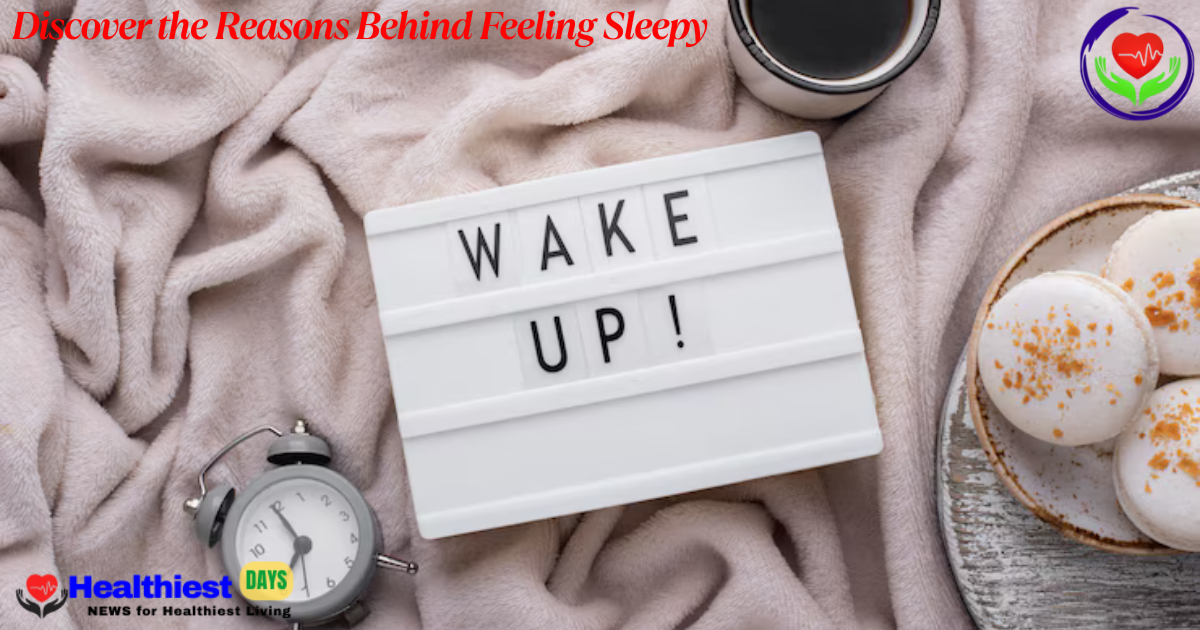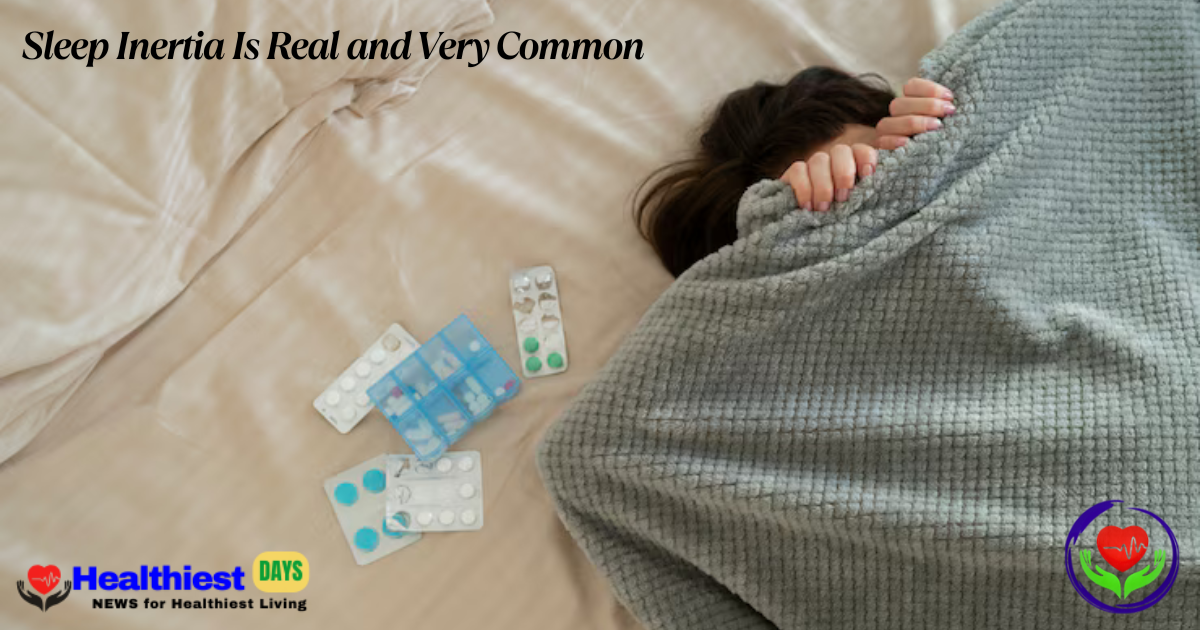Breaking The Shackles of Feeling Sleepy in the Morning
If you’re waking up groggy even after a full eight hours of sleep and still feeling sleepy in the morning, believe the fact that you’re not alone. Millions of Americans start their morning day routine feeling sluggish, relentless in thoughts, or even entirely unmotivated in their lives while leaving the bed at irregular hours.
“Still facing an unequal sleeping schedule after completing 8 hours of sleep regularly? The issue is commonly connected with morning fatigue and excessive daytime sleeping routines. It is not just confusing; it may bring some strong signals regarding health imbalance.
Recent U.S.-based studies reveal the important fact that how one wakes up is closely linked with one’s lifestyle, nutrient status, and regularity of sleep environment. In this guide, we’ll explore the science-backed reasons for the phenomenon of morning drowsiness.
Additionally, we will add important natural remedies that actually work and are approved by modern-day researchers.
Your Internal Clock Might Be Disrupting Your Morning Energy:

One major reason for the fact that people can not wake up feeling refreshed is circadian misalignment—when your internal clock is out of sync with your sleep-wake patterns. Even if you’re clocking 7–9 hours, irregular bedtimes, late-night screen exposure, or artificial lighting can delay melatonin secretion and throw off your rhythm.
According to modern research published in the journal Building and Environment, exposure to natural morning sunlight for just 20 minutes significantly improves wakefulness and reduces sleep inertia—the heavy grogginess felt after rising from deep sleep.
Vitamin and Mineral Deficiencies—The Hidden Culprits Behind Sleeping Disorders:
Have you ever inquired, “Does low vitamin D make you tired in the morning?” The answer is yes—and it’s well documented. A 2024 review from multiple U.S. universities highlighted strong links between low vitamin D and symptoms like fatigue, insomnia, and mood swings. Similarly, low levels of iron and vitamin B12 can cause chronic tiredness even after a seemingly full night’s rest.
In a nutshell, vitamins are essential to regulate your sleeping schedule, which may be the reason behind feeling sleepy in the morning.
Sleep Inertia Is Real and Very Common:

Sleep inertia is the foggy, disoriented feeling you get right after waking. It can last 15 minutes or several hours, depending on what stage of sleep you’re in when the alarm goes off. If you find yourself repeatedly asking, “How do I stop feeling sleepy in the morning?”, the answer could lie in avoiding snoozing through deep sleep cycles and waking up during lighter sleep stages.
Try using a sleep tracking app or a smart alarm that wakes you up at the optimal part of your sleep cycle. Also, expose yourself to natural light within 15–30 minutes of waking—your body will adjust faster, reducing the severity of sleep inertia.
Natural Remedies to Beat Morning Fatigue (Without Caffeine):
If you’re looking for how to fix morning tiredness without caffeine, you’ll be glad to know that simple, holistic remedies can go a long way:
1. Morning sunlight:
It regulates melatonin in your body and maintains the levels of cortisol.
2. Stretching and Hydration:

It just boosts up oxygen to the brain and improves the essential mechanism of blood circulation, which plays a vital role in ending sleepy feelings in the morning by making you alert, watchful, and active.
3. Protein-rich breakfast:
Interestingly, it avoids high-sugar meals that lead to a crash.
4. Digital sunset:
It has the capacity to turn off screens at least 60–90 minutes before bed. It will ensure mental peace and calmness, which are very important to live a healthy life.
5. Sleep consistency:
Sleep consistencies Maintain the same sleep or wake time, even on weekends, regularly. In short, it bridges your free time and tough working routine in an amazing way.
By implementing these, you create an environment where you no longer wonder, “Is it normal to want to sleep all day?”—you simply don’t feel that way anymore.
When Is There a Need to See a Doctor?
If you have ever tried to adjust your day-to-day routine, diet, and sleep habits but still feel drained, it’s time to consider deeper medical causes, which may lead to mental health issues and even more chronic diabetes mellitus. Sleep apnoea, thyroid disorders, depression, and even chronic fatigue syndrome can masquerade as everyday tiredness. If symptoms persist longer than two weeks, consult a physician.
Final Thoughts ON Reasons Behind Sleeping Disorders:
Feeling drained and exhausted every morning does not have to be your norm under any condition. By addressing your sleep routine, nutritional needs, and environmental habits, you can reclaim your mornings and feel fully refreshed even without caffeine. If you still feel excessively tired despite these changes, trust your gut and seek medical guidance.
Your healthiestDays can begin with a single decision—start tomorrow morning with courage and confidence.
FAQs
1. The reason behind feeling tired after sleeping 8 hours?
It could possibly be due to the poor sleep quality, nutrient deficiencies (like vitamin D or B12), stress, or disrupted circadian rhythms. Deep sleep is more important than total hours.
2. What are the hidden causes of morning fatigue?
Considering lesser-known factors certainly includes poor air quality in bedrooms, blue light exposure before bed, chronic dehydration, or low-iron levels, which can lower your morning energy.
3. Is it normal to want to sleep all day?
Occasionally the answer becomes yes, yes—especially after intense physical or emotional stress. But a persistent need to sleep throughout the day could point to sleep apnea, depression, or nutrient imbalances.
4. How do I stop feeling sleepy in the morning naturally?
Start your day with sunlight exposure, hydrate well, eat a protein-rich breakfast, avoid screens before bed, and make sure your room is cool and dark at night.
5. Can low vitamin D cause excessive sleepiness?
Yes, low levels of vitamin D have been exactly attached to both poor sleep quality and excessive daytime sleepiness. Getting tested and supplementing if needed is recommended.








